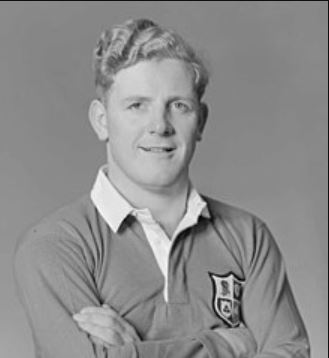Biography
William Benjamin Cleaver, known as Billy Cleaver, was born on September 15, 1921, in Treorchy, Wales. A skilled and strategic fly-half, Cleaver was celebrated for his tactical prowess and his ability to shift pace on the field. He was also a dedicated coal miner, eventually moving into managerial roles within the mining industry. Outside of rugby, Cleaver had a deep love for the arts, serving as the secretary of the Contemporary Arts Society for Wales (1972–1991) and as vice-chairman of the Welsh Arts Council (1980–1983). His contributions to both sport and arts left a lasting legacy in Wales.
Teams and Playing Years
- Treorchy RFC
- Newbridge RFC: 1945–1951
- Bridgend RFC
- Cardiff RFC: 1946–1947
- Barbarian F.C.
International Appearances
Billy Cleaver earned 14 caps for the Welsh national team, playing from 1947 to 1950. He also represented the British Lions on their 1950 tour to Australia and New Zealand, where he played in three test matches against the formidable All Blacks and a number of provincial games. His career with Wales was marked by pivotal moments, including being part of the 1950 team that won the Grand Slam in the Five Nations Championship.
Career Highlights
- Five Nations Championship and Grand Slam Victory: Cleaver made his debut for Wales in the 1947 Five Nations Championship, the first official Welsh rugby match after World War II. He quickly made an impact, scoring his first international try in a decisive victory over Scotland. Cleaver played a crucial role in the 1950 Five Nations campaign, helping Wales secure the Grand Slam and contributing a memorable drop goal against Scotland.
- British Lions Tour of 1950: Selected for the British Lions’ tour of Australia and New Zealand, Cleaver’s experience was unique as he was unexpectedly placed in the full-back position—a role he hadn’t trained for—due to an injury to Ireland’s full-back, Norton. Despite this positional shift, Cleaver showed impressive adaptability and played in three tests against New Zealand, earning respect for his skillful performance opposite the All Blacks’ legendary Bob Scott.
Legacy
Billy Cleaver’s rugby career, though relatively short, was impactful. Known for his keen on-field intelligence and ability to play under pressure, he became a symbol of post-war Welsh rugby resilience. His career beyond rugby, including his dedication to promoting the arts in Wales, exemplifies his multifaceted contributions to Welsh culture. His story is a reminder of the versatility and commitment of Welsh rugby icons, both on and off the field.
